Filter by

Bioeconomy and Global Inequalities : Socio-Ecological Perspectives on Biomass…
This open access book focuses on the meanings, agendas, as well as the local and global implications of bioeconomy and bioenergy policies in and across South America, Asia and Europe. It explores how a transition away from a fossil and towards a bio-based economic order alters, reinforces and challenges socio-ecological inequalities. The volume presents a historically informed and empirically r…
- Edition
- -
- ISBN/ISSN
- 978-3-030-68943-8
- Collation
- 338
- Series Title
- -
- Call Number
- -
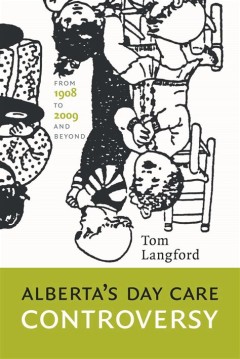
Alberta's Day Care Controversy: From 1908 to 2009 and Beyond
Day care in Alberta has had a remarkably durable history as a controversial issue. Since the late 1950s, disputes over day care programs, policies, and funding have been a recurring feature of political life in the province. Alberta's Day Care Controversy traces the development of day care policies and programs in Alberta, with particular emphasis on policy decisions and program initiatives tha…
- Edition
- -
- ISBN/ISSN
- 9781926836317
- Collation
- 425 hlm; ill., lamp.,
- Series Title
- -
- Call Number
- -
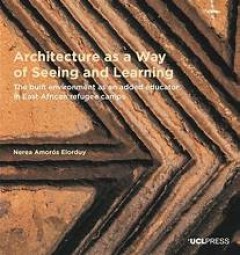
Architecture as a Way of Seeing and Learning
At the beginning of 2020, 66 long-term refugee camps existed along the East African Rift. Millions of young children have been born at the camps and have grown up there, yet it is unknown how their surrounding built environments affect their learning and development. Architecture as a Way of Seeing and Learning presents an architect’s take on questions many academics and humanitarians ask. Is…
- Edition
- -
- ISBN/ISSN
- 9781800080119
- Collation
- oer.unej.ac.id
- Series Title
- Design Research in Architecture,
- Call Number
- Architecture: professional practice

Architecture and Politics in Africa
Buildings shape politics in the ways they define communities, enable economic activity, reflect political ideas, and impact state-society relations. They are materially and symbolically interwoven with the everyday lives of elites and citizens, as well global flows of money, goods, and contracts. Yet, to date, there has been no research that explicitly connects debates about Africa's domestic a…
- Edition
- -
- ISBN/ISSN
- 9781800105638
- Collation
- oer.unej.ac.id
- Series Title
- Making & Remaking the African City: Studies in Urban Africa,
- Call Number
- -
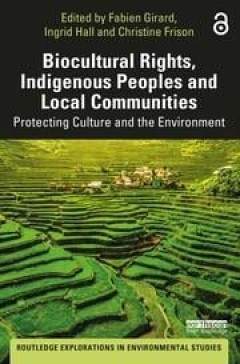
Biocultural Rights, Indigenous Peoples and Local Communities: Protecting Cult…
This volume presents a comprehensive overview of biocultural rights, examining how we can promote the role of indigenous peoples and local communities as environmental stewards and how we can ensure that their ways of life are protected. With Biocultural Community Protocols (BCPs) or Community Protocols (CPs) being increasingly seen as a powerful way of tackling this immense challenge, this …
- Edition
- -
- ISBN/ISSN
- 9781000593624
- Collation
- 380
- Series Title
- -
- Call Number
- -

Age of Information: Concept, Metric and Tool for Network Control
The concept of information freshness has developed over the last few years into an active and rapidly growing area of research. It has become known as the Age of Information (AoI). After its initial formal introduction, it became clear that it was very relevant (if not crucial) for numerous applications, ranging from autonomous vehicle systems, the Internet of Things, real-time computing to dat…
- Edition
- -
- ISBN/ISSN
- 9783036572925
- Collation
- 400
- Series Title
- -
- Call Number
- -

Against Sex Education : Pedagogy, Sex Work, and State Violence
This book is available as open access through the Bloomsbury Open programme and is available on www.bloomsburycollections.com. Why do we have sex education? For whom does it exist, and who is it against? This book explores these questions, ultimately calling into question the very existence of sex education itself. The analysis is centred on the marginalised lives of sex workers. This focus all…
- Edition
- -
- ISBN/ISSN
- 9781350178465
- Collation
- 184
- Series Title
- Radical Politics and Education
- Call Number
- -
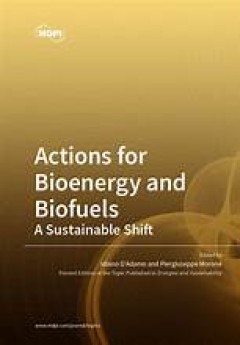
Actions for Bioenergy and Biofuels: A Sustainable Shift
The topic of bioenergy is a multidisciplinary one, where the use of resources and skills can be optimized for the development of sustainable models. It is a time for green strategies, but also for action. It is, therefore, necessary to implement projects that address virtuous examples of the circular bioeconomy. All politicians are called on to contribute, because this global goal can only be a…
- Edition
- -
- ISBN/ISSN
- 9783036540665
- Collation
- oer.unej.ac.id
- Series Title
- -
- Call Number
- -
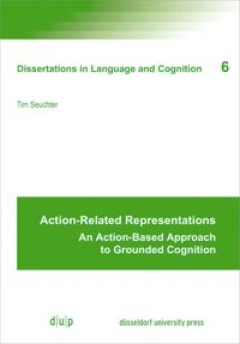
Actions for Bioenergy and Biofuels: A Sustainable Shift
The topic of bioenergy is a multidisciplinary one, where the use of resources and skills can be optimized for the development of sustainable models. It is a time for green strategies, but also for action. It is, therefore, necessary to implement projects that address virtuous examples of the circular bioeconomy. All politicians are called on to contribute, because this global goal can only be a…
- Edition
- -
- ISBN/ISSN
- 9783036540665
- Collation
- oer.unej.ac.id
- Series Title
- -
- Call Number
- -

Accounting for Culture
Many scholars, practitioners, and policy-makers in the cultural sector argue that Canadian cultural policy is at a crossroads: that the environment for cultural policy-making has evolved substantially and that traditional rationales for state intervention no longer apply. The concept of cultural citizenship is a relative newcomer to the cultural policy landscape, and offers a potentially compe…
- Edition
- -
- ISBN/ISSN
- 9780776615332
- Collation
- oer.unej.ac.id
- Series Title
- Governance Series,
- Call Number
- -
 Computer Science, Information & General Works
Computer Science, Information & General Works  Philosophy & Psychology
Philosophy & Psychology  Religion
Religion  Social Sciences
Social Sciences  Language
Language  Pure Science
Pure Science  Applied Sciences
Applied Sciences  Art & Recreation
Art & Recreation  Literature
Literature  History & Geography
History & Geography